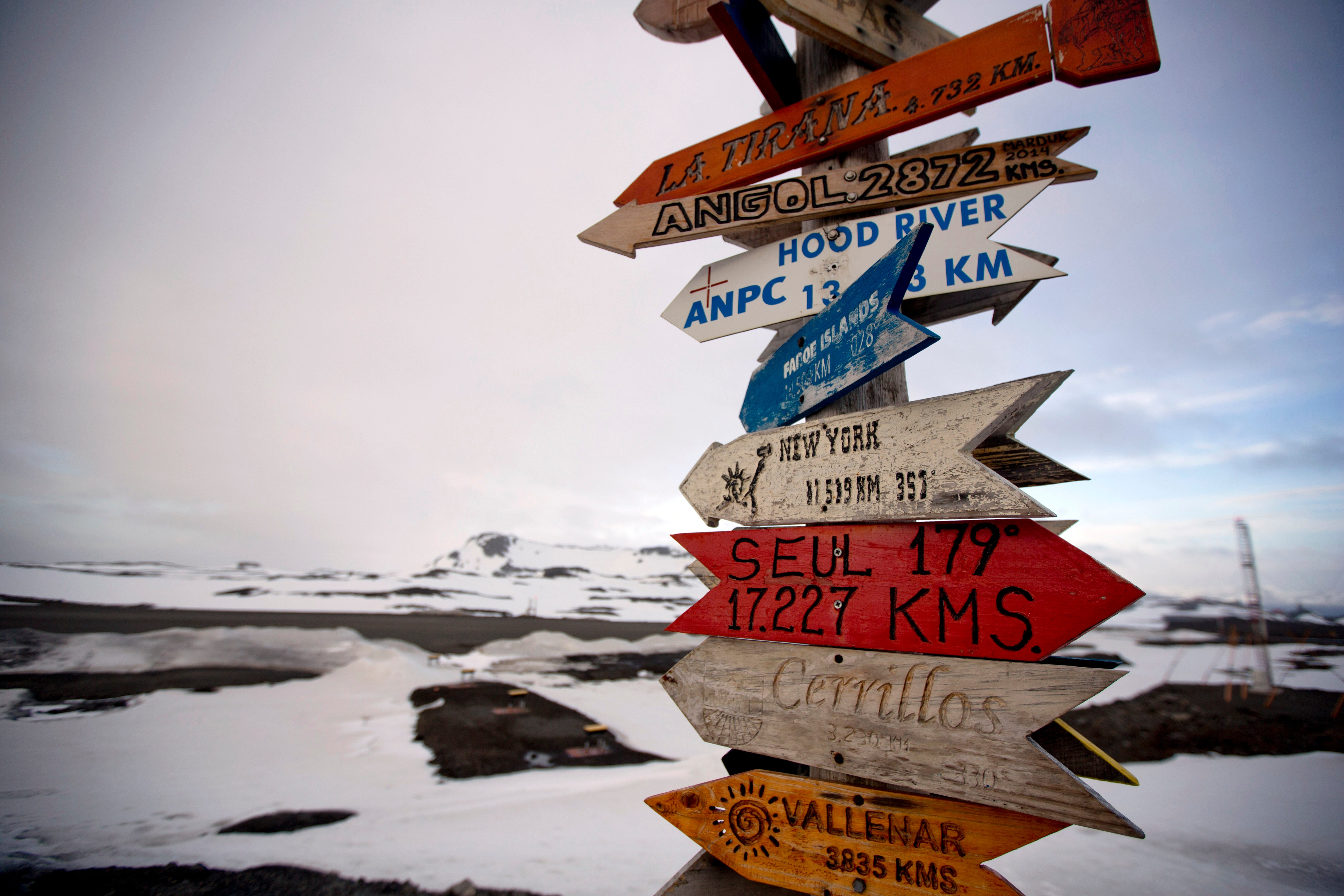Cold but safe: Argentines in Antarctica rarely don masks
As Argentina’s coronavirus cases surge, scientists and military personnel who live in the South American country’s bases in Antarctica feel safe and fortunate on the only continent without reported cases

Your support helps us to tell the story
From reproductive rights to climate change to Big Tech, The Independent is on the ground when the story is developing. Whether it's investigating the financials of Elon Musk's pro-Trump PAC or producing our latest documentary, 'The A Word', which shines a light on the American women fighting for reproductive rights, we know how important it is to parse out the facts from the messaging.
At such a critical moment in US history, we need reporters on the ground. Your donation allows us to keep sending journalists to speak to both sides of the story.
The Independent is trusted by Americans across the entire political spectrum. And unlike many other quality news outlets, we choose not to lock Americans out of our reporting and analysis with paywalls. We believe quality journalism should be available to everyone, paid for by those who can afford it.
Your support makes all the difference.As COVID-19 cases surge in their homeland, there are at least some Argentines who feel secure: the scientists and military personnel at South American country’s bases in Antarctica the only continent without reported cases
More than 765,000 people in Argentina are confirmed to have been infected with the new coronavirus and more than 20,000 people have died of COVID-19 there since the pandemic started. But Argentines who live in the country’s 13 bases in Antarctica — six are permanent and the rest operate only in the summer — continue to share a metal straw to sip the traditional mate tea and sit together to eat. They rarely wear masks.
“The times when the crew is all together are breakfast, lunch and dinner and they watch a movie in their free time, they have some mates. We spend a lot of time together and we share a lot,” army Capt. Nicolás Barrios told The Associated Press from the Belgrano II Base that he heads.
Barrios said he felt fortunate to lead a normal life there and that, ahead of the next change of the 22-member staff at the base, “each one is thinking about how to live when we leave the base and what the process of returning to daily life on the continent will be like.”
He said the use of masks is not common on the base, except for certain work tasks.
“If we have to make them, we have a sewing machine,'' Barrios said.
The Argentines at the bases conduct scientific and other work, staying in touch with their families back home and following the news as best they can. Relatives of two members of the Belgrano II base had COVID-19 but recovered.
The Belgrano II base is located south of Argentina's Marambio and Esperanza bases, near the South Pole.
All the bases have an evacuation protocol in the event of positive coronavirus cases, using ships, helicopters and a plane. They also have doctors and ventilators available.
For the austral summer season beginning in November, Argentina plans to have just 400 military and scientific personnel at its Antarctica bases instead of the usual 2,000. All will be tested for the new coronavirus before and after a quarantine period at the Campo de Mayo military base in Buenos Aires.
“The (Antarctic) continent is clean, healthy, and we have a responsibility, and we are adopting appropriate measures to continue with this situation,” Argentina's Antarctic joint commander, Col. Edgard Calandín, said from his office in Buenos Aires.
___
Associated Press journalist Almudena Calatrava contributed from Buenos Aires.